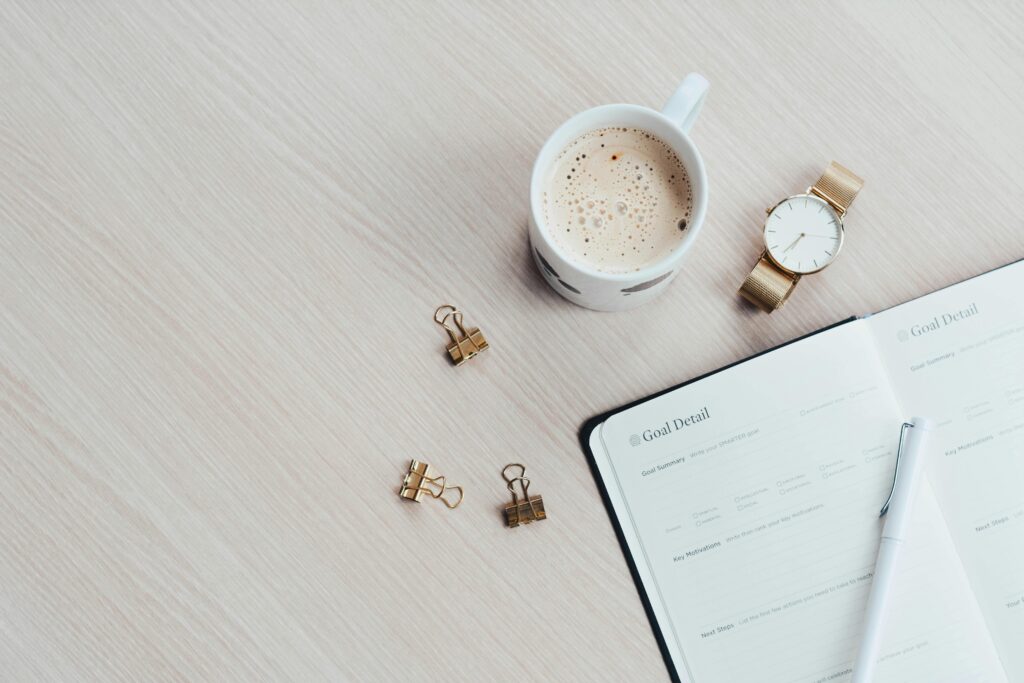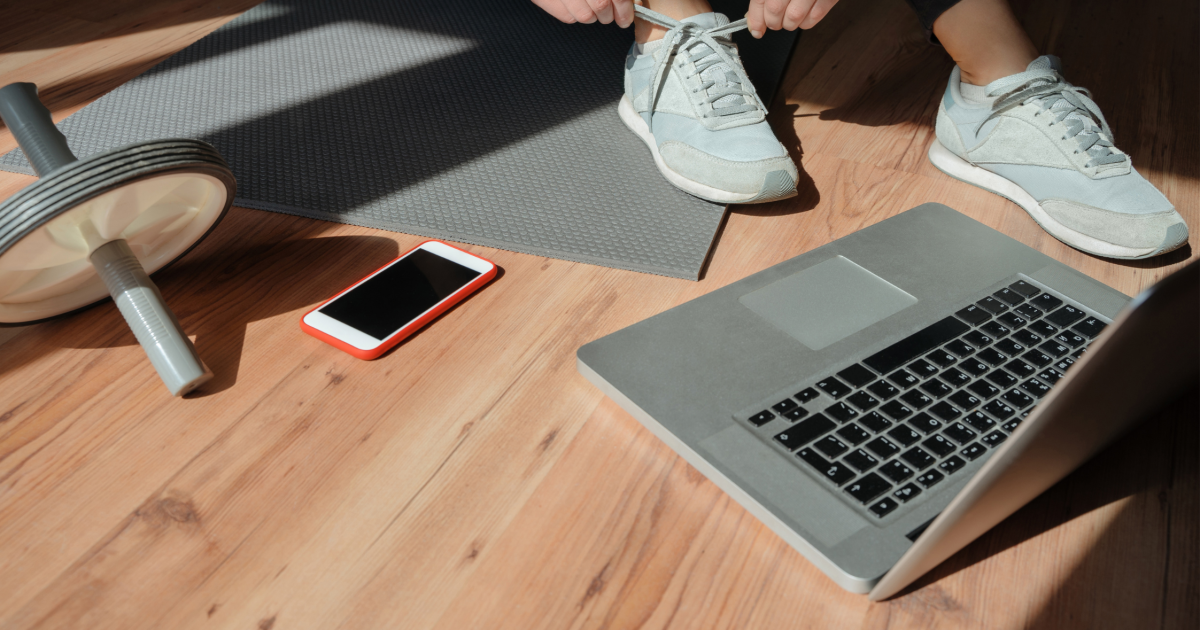We all have a vision of ourselves – a healthier, happier, more productive version. But sometimes, the gap between that vision and reality can feel vast. Starting that journey can often feel overwhelming. It’s completely normal to wonder where to begin, especially with so much information out there. The good news? You don’t need a complete life overhaul to reach your goals. This guide on “essential habits for self-improvement ” is here to simplify the process, breaking the pattern of over-complicating things and helping you focus on what really matters. Small, consistent daily habits can be the secret weapon that unlocks a better you.
Think of your self-improvement journey like planting seeds; each small habit you adopt is a little seed that, with a bit of time and care, can blossom into something beautiful in your life. By focusing on manageable changes, you’re laying a strong foundation for lasting success and well-being. While these tiny tweaks might seem small at first, they have a way of building up and creating a powerful ripple effect, transforming your life in ways you never imagined. Remember, every great journey starts with just one step, and each step brings you closer to the amazing person you’re meant to be.
In this guide, I’m excited to share seven essential habits for self-improvement that have been tried and tested to help you kickstart your self-improvement journey in 2024. Whether you’re aiming to enhance your well-being or simply want to find more joy in your everyday life, these habits are both simple and effective. So, grab your favorite drink, get cozy, and let’s embark on this inspiring journey together!
But before we dive into the habits themselves, let’s explore the powerful science behind the concept of “small wins.”
Table of Contents
The Science Behind Small Wins

This idea isn’t just a motivational catchphrase; it’s supported by solid research. Studies by Charles Duhigg, author of The Power of Habit, reveal that our brains thrive on positive reinforcement. By setting small, achievable goals and celebrating your progress, you create a neurological loop that strengthens these behaviors, making them easier to stick with over time.
When you achieve a small goal, your brain releases dopamine, often called the “feel-good” hormone. This not only boosts your happiness but also reinforces the actions that led to your success, encouraging you to repeat them in the future. Essentially, you’re training your brain to seek out these small victories. As you accumulate these minor successes, your confidence grows, making those once-out-of-reach goals feel much more attainable.
Another fascinating benefit of small wins is their ability to build resilience. Life can throw challenges your way, but by focusing on and celebrating your small achievements, you equip yourself to handle setbacks more effectively. These victories remind you of your progress and capabilities, providing motivation and a buffer against life’s inevitable lows.
In a nutshell, the science of small wins highlights how making tiny, gradual changes can significantly enhance your well-being and success. By incorporating small, positive habits into your daily routine, you can tap into this powerful strategy and pave the way for lasting transformation into a better you.
Read More on Why Celebrating Small Wins Matters!
7 Essential Habits to Begin Self-Improvement Journey
Embarking on a self-improvement journey doesn’t happen overnight. If you try to tackle everything all at once, it can take a serious toll on your mental health—trust me, I’ve been there.
For the past four to five years, I’ve been working on becoming a better version of myself, and I’ve lost count of how many times I’ve stumbled along the way. I followed the common formula: focusing on four key aspects of life—physical, mental, spiritual, and financial. I would identify gaps and attempt to build better habits to fill them. I’d spend nights crafting long lists of everything I wanted to improve, and then I’d start fresh the next day. But keeping up with all those changes, especially alongside my daily responsibilities, became overwhelming. Within just a few days, I’d feel burnt out, exhausted, and irritable—mentally drained and frustrated at yet another failed attempt, ready to slip back into my old patterns.
After trying the same approach repeatedly, I finally cracked the code for building a healthy routine. Let me be clear: having a structured morning routine or a skincare regimen isn’t a bad thing at all. In fact, it’s great! But if you’re new to this journey like I was, it’s essential to start with some core habits before diving into those elaborate routines. These foundational habits will support everything else.
The best part about developing these core habits is that they touch on all the aspects I mentioned earlier. Instead of allocating separate time slots for each area, I’ve found ways to integrate them into a simple daily routine. This approach makes everything feel more manageable and less like an additional burden.
The key is to commit to building these habits consistently for two months. Once they become second nature, we can seamlessly transition to more complex routines without feeling overwhelmed.
So, let’s dive in!
1. Start Your Day Right: Must-Have Morning Habits

We all wake up in the morning at different times. But what i am gonna do here is to give you a morning to-do list. If you want you can write it down in your notes or a diary or you can just learn it on your fingertips:
- Brush Your Teeth and Floss: I know we all have our morning rituals, from splashing water on our faces to brewing that first cup of coffee. But let’s talk about something that often gets overlooked: dental hygiene. It might seem trivial, but I’ve read somewhere that your smile is one of the first things people notice about you, and it reflects your personality. A bright, healthy smile can boost your confidence and make you feel ready to tackle the day!
- Make Your Bed: This is where the science of small wins really comes into play! As soon as you step out of the bathroom, take a moment to make your bed. Smooth the sheets, fluff the pillows, and create a cozy space that invites positivity. Making your bed first thing in the morning not only tidies up your space but also gives you a rewarding sense of achievement. I’ll be honest: I used to struggle with this. I’d start strong, making my bed for a few days, but then I’d think, “Oh, it’s okay, I’ll just work from bed.” Sound familiar? It wasn’t until I set a firm boundary against working in my bedroom that I truly began to appreciate the small win of a made bed. Now, it feels like the first triumph of my day—a little victory that sets a positive tone for everything that follows. Research shows that small accomplishments can boost your motivation and mood, making it easier to tackle the day ahead. Plus, there’s something incredibly satisfying about returning to a neatly made bed at the end of a long day. It’s like a gentle reminder that you’ve got your life together, even when things feel chaotic. Creating a calming morning routine is essential for overall wellness and productivity. When you start your day with this simple task, it builds momentum for other positive habits. So, give it a try! You might just find that making your bed becomes your favorite part of your morning ritual.
- Place a Book on Your Pillow: I got this idea from the book Atomic Habits, and if you haven’t read it yet, I highly recommend grabbing a copy! It’s a treasure that can guide you on your self-improvement journey. Building a habit requires cues, and placing a book on your pillow after making your bed is a fantastic reminder to read at night. Even if you’re not a big reader, aim to read 3-4 pages before bed. It’s a great way to replace mindless scrolling, which can mess with your melatonin levels—the sleep hormone. Want a bonus tip for better sleep? Try eating 5-6 pistachios before bed; they help release sleep hormones! (You can expect more tips like this throughout my blog!)
- Make Your Breakfast Yourself: I used to be pretty lazy, always relying on my mom’s delicious cooking. Being an only child, I was definitely a bit spoiled! But then it hit me: I wasn’t getting enough physical activity, and it was time for a change. So, I decided to start making my own breakfast. It gave me a sense of independence. I started with simple things like oatmeal or scrambled eggs, experimenting with different toppings. Let me tell you, standing up to cook—even if it’s just for a few minutes—really gets the blood flowing! There’s something empowering about preparing your own meals. Plus, I discovered that I enjoyed it more than I thought. It’s not just about the food; it’s about the little rituals that bring joy to my mornings. To me, self-improvement is all about striving for that 1% better every day. Whether it’s adding a sprinkle of cinnamon to my oatmeal or trying a new breakfast recipe, these small changes add up. Over time, they lead to significant results—not just in my physical health, but in my overall mindset. When you commit to these daily practices, you start to notice a shift in your energy levels and mood. It’s about creating a morning routine that sets a positive tone for the rest of your day. So, don’t underestimate the power of making your own breakfast. It’s a small but mighty step on your journey to becoming a better you!
2. Stay Hydrated: Make Water a Daily Priority
I can’t tell you how many times I’ve heard that drinking water is essential. I’ve read countless articles and seen countless reminders, yet I struggled to make it a habit. The truth? I just wasn’t drinking enough water. It’s so important that I didn’t even add it to my morning to-do list, because honestly, we should be sipping water all day long!
The benefits of hydration are astonishing, and I’d love to share my journey. If you’re like I was—someone who doesn’t prioritize water—here are a few tips that really helped me build this vital habit:
First, consider getting a water bottle with liter markers. This simple tool gives you a target to aim for each day. Seeing those markers fill up is super motivating! Alternatively, you can use a regular water bottle and refill it throughout the day until you hit your goal of 3-4 liters. Just getting up from your desk or bed for a refill adds a little physical activity to your routine, which is a great bonus!
Remember our discussion about small wins? Apply that here! Each time you finish a bottle, you can celebrate that small victory. Keep track of your progress in your phone or a notebook; it makes a world of difference.

Establishing this habit changed my life! There were days when I barely managed to drink one glass of water in 24 hours, but now, I can’t imagine going without it.
Now, let me share the incredible benefits I experienced firsthand—benefits I had always underestimated. First off, my skin became noticeably more radiant and clear. Yes, the old saying is true: water does wonders for your skin! I have oily skin prone to breakouts, but after a few weeks of increasing my water intake, friends started complimenting my complexion. They thought I had switched up my skincare routine! The only change I made was drinking more water – no new products involved.
Another significant benefit? It’s been a game changer for my weight loss journey. Since I began drinking a glass of water before every meal, I’ve noticed that I don’t feel the urge to overeat. Water fills you up without adding any calories, which is a strategy supported by research.
So, if you’re looking to improve your health and well-being, start prioritizing hydration. Your body—and your skin—will thank you!
3. Move Your Body: Daily Physical Activity for Health

If you’re already an active person, I just want to say how proud I am of you! Your dedication to staying fit is truly inspiring.
But if you’re like me and find it hard to incorporate physical activity into your day, don’t worry—let’s start from the basics together. First, it’s essential to assess your current activity level.
I spend a lot of my day sitting because I work from home, often moving from my bed to my desk and back. I’ve tried countless workouts—resistance training, weights, pilates, yoga, and cardio. I’ve experimented with various durations, from 5 to 60 minutes, and I’ve even attempted to reach that elusive 10,000-step goal with morning walks, evening strolls, and everything in between. But after about four days, I’d revert back to my inactive lifestyle.
After all those failures, I had to ask myself what was going wrong. Yes, I lacked consistency, but I discovered there was something else at play: finding my easy. This principle applies to every area of life, but especially to physical activity. Each of us has different levels of stamina and endurance.
When I watch fitness influencers on YouTube doing intense workouts, I remind myself that they’ve spent years honing their skills. Their stamina, flexibility, and overall fitness level are far beyond where I am now. While it’s absolutely possible to reach that level, we must remember that it won’t happen overnight. It takes time, practice, and patience to become that lean, physically active person who can tackle 45 minutes of intense cardio.
The reason I struggled to keep up with those workouts was simple: they felt too hard for me. I realized I needed to find what worked for me. As James Clear mentions in Atomic Habits, one of the four laws of building a habit is to “Make it easy to do.”
So, I started with a basic approach: the 30-30 formula. I’d work for 30 minutes, then stand for the next 30 minutes. This way, I could complete my working hours while reducing the negative effects of sitting. Research shows that standing is significantly better for our health, even if it’s just for a short while.
Initially, even standing for 30 minutes felt challenging. I had to remind myself, “Really, girl? You can’t even stand? Your grandma walks all day, and here you are, struggling at just 24!” Sometimes, a little self-motivation is all we need. It amazed me that my father, at 60, could walk faster than I could at my age!
The takeaway? Start small, find what feels easy for you, and gradually build up your activity level. Every step you take—literally and figuratively—brings you closer to a healthier, more active lifestyle.
4. Track Your Spending: Build Smart Financial Habits
Financial management is an area where many of us could use some improvement. Even if you haven’t started earning yet, it’s crucial to build good financial habits now.
I’m not going to dive into percentages of saving and spending—that’s a topic for another day. Instead, let’s keep it simple and focus on the basics of our spending habits. Here are two essential questions to ask yourself before making any purchase. I came across these questions online, and I’m not sure who first mentioned them, so if you know, please reach out—I’d love to give credit!

1. Do I “WANT” this, or do I “NEED” this?
This is key. I used to buy all sorts of random things just because I had money in my bank account and felt like treating myself. Since I started applying this question, my spending habits have changed dramatically. I’m not saying we should never indulge in our wants—if you can afford it, go for it! But I realized that while my parents were working hard to make ends meet, I was ordering pens alongside ice cream and burgers. It was a bit weird, right?
Now, we need to approach our spending maturely and be considerate of those who support us. If you can easily fulfill your needs, it’s okay to enjoy your wants. However, after experiencing financial hardships, I believe that fulfilling our needs should be a priority. Instead of immediately splurging on wants, consider saving for unforeseen events. Having a financial cushion can prepare you for emergencies and allow you to indulge later without worry. Trust me, you won’t realize how crucial savings are until you face an unexpected expense without any savings to fall back on.
2. Am I buying this because I genuinely “WANT” it, or because I want to “IMPRESS” others?
Your first reaction might be, “Why would I spend money to impress others?” I get it—I’ve been there! But here’s the truth: nobody is watching you answer this question, and you need to be honest with yourself. Sometimes, making hard choices means facing uncomfortable truths. Many of us stall in our personal growth because we struggle to accept our habits for what they are. For instance, if you don’t acknowledge that binge-watching Netflix isn’t a productive use of your time, you may never feel the urge to change it.
Spending money to impress others isn’t inherently wrong, as long as it doesn’t compromise your essential expenses. But being honest about your motivations can lead to more meaningful and fulfilling financial decisions.
5. Embrace Solitude: Spend Some Time Alone Daily

Solitude is often underrated in our busy, digital world. With constant distractions vying for our attention, taking the time to sit alone with our thoughts can feel like a chore. However, mastering the courage to embrace solitude can be transformative.
As an only child, I spent a lot of my life alone. My parents are wonderful and always respected my need for privacy, so I can’t recall a day without some time to myself. Initially, I viewed solitude neutrally; I didn’t realize its benefits until I enrolled in a psychology course. During class activities, I discovered that I consistently scored high on emotional intelligence and self-awareness scales.
After discussing these insights with my counselor, she emphasized how much credit I should give to the time I spent alone. She explained that this practice fosters emotional growth and self-discovery, helping me understand my thoughts and feelings more deeply.
When you sit with yourself, you create space to know who you truly are. Start by dedicating just 15 minutes a day to reflect on your thoughts and feelings. You might be surprised to find how little you actually know about yourself! Seriously, it’s eye-opening. As you begin this practice, you’ll likely find it hard to stop, as it leads you to connect with your authentic self—the person you are when no one is watching and when you’re not trying to fit in.
Through this process, you’ll uncover your likes and dislikes, strengths and weaknesses, and even identify bad habits you’d like to replace with healthier ones.
Beyond self-awareness, solitude has significant mental health benefits. When you take a break from the world and focus on yourself, it’s a powerful form of self-care. This act sends a clear message to your brain: you matter. In these moments of reflection, you can sit with your emotions, analyze how you react in various situations, and discover ways to avoid negative patterns in the future.
6. Nightly Habits for Better Sleep

You might have noticed I use the term “to-do list” instead of “routine” for both morning and night. Honestly, I think routines can feel a bit overwhelming, especially when you’re just starting out. A to-do list keeps things simple and focuses on the essentials we all need to embrace.
1. Unplug 30 Minutes Before Bed:
First things first—let’s talk about screens. I know how tempting it is to scroll through your phone right before bed (guilty as charged!). But trust me, tossing your phone, laptop, or any screen aside at least 30 minutes before sleep can make a world of difference. Research shows that blue light can mess with our melatonin levels, which are essential for a good night’s sleep. While some experts say 1-2 hours is best, starting with 30 minutes feels way more doable. This little change sends a signal to your brain that it’s time to unwind. Plus, we’ve all been there—mindlessly scrolling through stressful news or social media at bedtime. Let’s skip that and focus on something soothing instead!
2. Read for 30 Minutes:
Now, remember that book you set by your pillow in the morning? It’s calling your name! Instead of plopping down on your bed, try walking around your room while you read. It keeps things fresh and helps you stay awake. If you’re already a bookworm, those 30 minutes will zoom by. But if reading isn’t really your thing, no worries! Just aim for 2-3 pages. Underline anything that catches your eye or resonates with you. If you stumble upon a quote or idea that makes you think, take a moment to really ponder it. This practice not only builds your reading habit but also gives you a nice little victory at the end of the day, especially if it’s been tough. Ending your day with something positive can really shift your vibe!
3. Journal About Your Day:
If you’ve carved out some reading time during the day, let’s switch gears and do a bit of journaling instead. Write down what went well, what you accomplished, and what you’re looking forward to tomorrow. This is your chance to reflect and clear your mind. I used to toss and turn at night because my brain was buzzing with things to remember. Writing them down in a cute little notebook helped me feel more organized and relaxed.
4. List Tomorrow’s Tasks:
And here’s the big one—if you have a jam-packed schedule, this step is a game changer. Jot down everything you need to tackle tomorrow, whether you’re a student or working full-time. It’s like giving your brain a mini vacation! I can’t tell you how many times I’d struggle to sleep because my mind was racing with to-dos. Getting it all on paper takes that weight off your shoulders and helps you drift off peacefully.
7. Stay Persistent: The Habit of Never Giving Up

Let’s talk about a habit that’s absolutely crucial yet often overlooked: the ability to stand up again. Seriously, not giving up is a habit in itself. Building consistency and discipline means we have to keep getting back on track, even when it feels impossible. I’ve learned this the hard way on my self-improvement journey. There were so many times when I’d miss a day of my routine and think, “Well, there goes everything!” and just fall back into old patterns.
The truth is, I was chasing perfection—a tricky illusion because perfection simply doesn’t exist. Instead, we need to embrace our imperfections. It’s taken me a while, but I’ve finally come to terms with this: “It’s okay to take a break, but what’s not okay is giving up entirely.”
At first, whenever I slipped up, I’d write in my journal, “I missed this important chore today, but I’m going to pick up my pace again tomorrow.” That simple act of acknowledgment was a game changer for me. It kept me from spiraling into overthinking. If I didn’t acknowledge my slip, that nagging guilt would creep in and haunt me at midnight, making me feel like a total failure. Before my mind could take me down that negative path, I’d write it all out. You know how people say sharing your worries can lighten the load? It’s true! Being vocal about our struggles really does help clear mental space.
Once I acknowledged my slip, it was time for affirmation. I’d jot down my commitment to get back on track or even record a voice memo. If you don’t have a supportive crew around you, that’s okay! Writing it down or telling a family member can still give you that boost. I’d say something like, “I fell off my routine, but that’s okay. Tomorrow, I’m doing it all over again, and this time, I’ll keep it going for three days.” Suddenly, I felt empowered again, like I hadn’t messed everything up.
This approach applies to everything. If you’re on a weight loss journey and the scale isn’t budging, don’t throw in the towel. Remind yourself that even if you can’t see the change on the outside, there’s so much good happening inside your body. I’ve been there, and I’ve learned that those small improvements add up. You might not lose a pound in two weeks, but then—bam!—by the end of week three, you’ve dropped two pounds. It’s all about patience and believing that those tiny 1% improvements will accumulate into something big over time.
So, the next time you stumble, remember: it’s not about how many times you fall, but how many times you choose to stand up again. You’ve got this!
